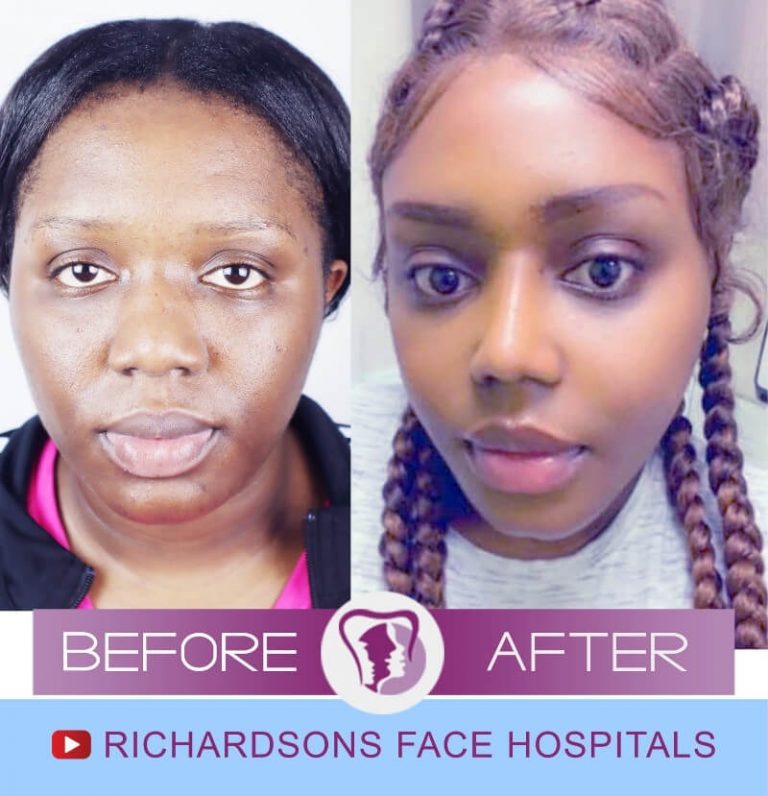Examining the Mental and Social Elements That Drive People to Think About Aesthetic Surgical Procedure as a Method of Renovation
The decision to pursue plastic surgery often prolongs past mere visual appeals, intertwining with social and mental characteristics that warrant detailed exam. Aspects such as self-esteem, pervasive societal appeal standards, and the prevalent influence of social media assemble to form specific inspirations for surgical enhancement. As these impacts end up being progressively prominent, recognizing the underlying social and emotional contexts is vital. What stays to be discovered is the profound impact these aspects have not just on individual identification yet also on broader social norms and worths surrounding elegance and approval.
The Role of Self-confidence
Self-esteem considerably affects a person's decision to pursue plastic surgery. Individuals with low self-worth frequently regard themselves in a negative light, resulting in feelings of insufficiency regarding their physical appearance. This unfavorable self-perception can drive them to seek surgical interventions as a technique of enhancing their self-image. The desire for enhancement in one's appearance is regularly connected to an idea that such changes will boost their overall self-regard and confidence.

Eventually, the role of self-confidence in the decision-making process pertaining to cosmetic surgery highlights the complex interplay between body photo, personal satisfaction, and mental wellness. Comprehending this connection is crucial for health care experts to make sure that patients are making notified decisions rooted in reasonable assumptions and psychological well-being.
Social Elegance Specifications
Influenced by prevalent media portrayals and cultural stories, social appeal criteria play an essential role in shaping people' understandings of their very own bodies. These criteria are frequently identified by an idyllic type of beauty that stresses characteristics such as youthful vigor, slimness, and symmetry. As these perfects are bolstered via different networks, including film, television, and advertising and marketing, people frequently internalize these messages, leading to frustration with their natural look.
The effects of these social norms expand past aesthetic choices; they can impact self-esteem, mental wellness, and social relationships. People who regard themselves as disappointing these criteria might experience sensations of insufficiency, triggering a desire for cosmetic surgical procedure as a way of attaining societal authorization. This quest is typically fueled by the belief that satisfying these ideals will certainly enhance not only physical appearance but also social standing and individual fulfillment.

Influence of Social Network
The influence of societal appeal requirements is more enhanced by the rise of social media systems, where curated images and idyllic depictions of beauty are ubiquitous. Individuals are regularly exposed to filtered and modified pictures, which frequently depict unattainable physical features. This direct exposure grows a culture of comparison, leading people to assess their very own look versus these commonly unrealistic standards.
Social network influencers and celebrities frequently promote aesthetic treatments, normalizing the notion that my site medical enhancements are a viable methods for accomplishing societal suitables (plastic surgery rancho cucamonga). The exposure of these enhancements can develop a perception that undergoing cosmetic surgical procedure is a standard method, therefore affecting people to think about similar treatments as a path to improved self-esteem and social acceptance
Additionally, the interactive nature of social media permits instant responses through sort and remarks, additionally enhancing the need to comply with preferred appeal standards. Such communications can worsen sensations of inadequacy and drive people towards cosmetic surgical treatment as a way of obtaining recognition. Eventually, social networks plays a pivotal role in forming understandings of beauty, which considerably influences the decision-making processes surrounding cosmetic surgery.
:max_bytes(150000):strip_icc():focal(299x319:301x321)/cardi-b-kim-kardashian-011923-f730f661ba814eec980bba77776d1e59.jpg)
Social Perspectives on Appearance
Throughout various societies, perceptions of appearance are deeply rooted in historic, social, and financial contexts, forming individuals' sights on beauty and value. In numerous cultures, appearance works as a substantial pen of identity, affecting social condition, specialist opportunities, and personal partnerships. As an example, in some cultures, light skin is usually connected with wide range and advantage, while others might idealize darker complexion as signs of toughness and credibility.
Additionally, traditional appeal requirements are typically bolstered with cultural narratives, media depictions, and family members influences, causing varying ideals across different areas (plastic surgery rancho cucamonga). In Western societies, the focus on young people and physical fitness commonly drives individuals toward aesthetic improvement, while in specific Eastern cultures, even more subtle adjustments aligned with standard visual appeals may be favored
Globalization and the spreading of digital media have further complicated these dynamics, developing a hybridization of charm suitables that goes beyond geographical borders. As individuals progressively browse these social narratives, the pressure to comply with details look requirements can result in the wish for cosmetic surgical procedure, reflecting a complicated interplay of personal ambitions and cultural worths. Comprehending these cultural perspectives is crucial in attending to the motivations behind cosmetic surgery considerations.
Psychological Effects of Plastic Surgery
Lots of individuals looking for plastic surgery report experiencing extensive emotional effects that can dramatically modify their self-perception and emotional well-being - plastic surgery rancho cucamonga. The wish for physical enhancement often stems from underlying problems such as low self-confidence, body dysmorphic condition, or societal pressures regarding appeal standards. For some, the prompt post-operative stage can cause a short-term boost in confidence and fulfillment with their look, fostering a sense of empowerment
However, these favorable feelings may not be sustaining. Study suggests that while some clients experience improved self-esteem, others might deal with heightened anxiousness or depression if their assumptions are not satisfied. This inconsistency can emerge from unrealistic suitables perpetuated by media index depiction and cultural narratives bordering beauty.
Moreover, the mental implications of plastic surgery expand beyond the person. Relationships look at here now with household and friends may be strained as social characteristics change, bring about sensations of isolation or alienation. Inevitably, the mental influences of cosmetic surgical procedure are diverse and complex, needing careful factor to consider by both prospective clients and doctor to guarantee educated decision-making and realistic expectations.
Verdict
Finally, the choice to pursue plastic surgery is significantly influenced by a mix of self-confidence issues, societal elegance requirements, and cultural point of views on appearance. The pervasive reach of social media further intensifies these pressures, advertising unrealistic perfects that individuals usually strive to achieve. Understanding these social and mental aspects is necessary for dealing with the motivations behind plastic surgery, highlighting the demand for an extra nuanced discussion bordering elegance and self-acceptance in contemporary society.
The choice to pursue cosmetic surgery often extends beyond plain looks, linking with social and mental dynamics that merit extensive evaluation. Eventually, social media plays a crucial function in shaping perceptions of charm, which dramatically impacts the decision-making procedures surrounding cosmetic surgery.
As individuals increasingly browse these cultural narratives, the stress to adhere to specific look requirements can lead to the wish for cosmetic surgical procedure, reflecting a complex interaction of social values and individual ambitions.In conclusion, the decision to pursue cosmetic surgery is considerably affected by a mix of self-esteem concerns, social elegance standards, and social point of views on look. Comprehending these social and psychological elements is vital for dealing with the motivations behind cosmetic surgery, highlighting the requirement for a more nuanced conversation surrounding elegance and self-acceptance in modern society.
Comments on “Plastic Surgery Inland Empire: Relied On Specialists for Spectacular Cosmetic Outcomes”